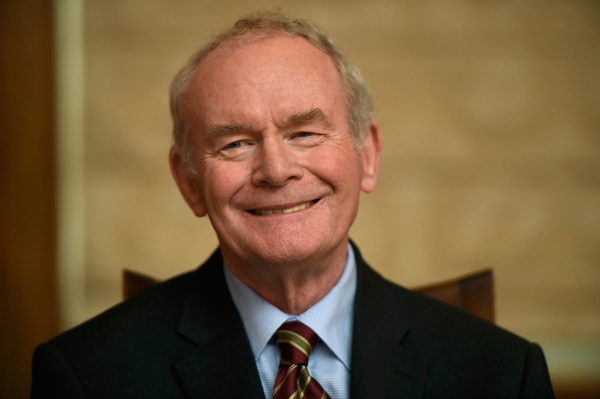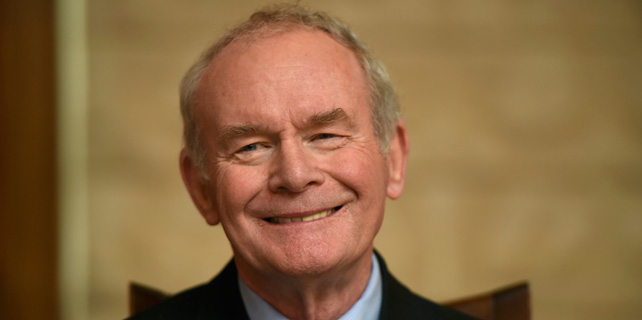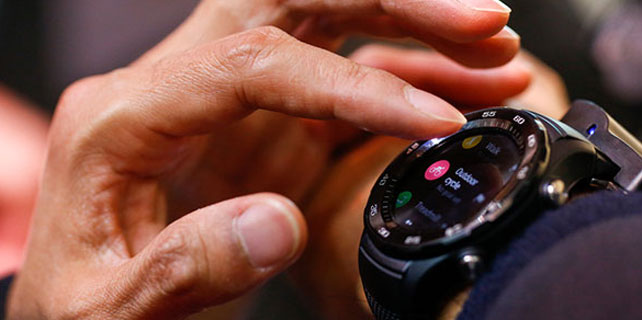Martin McGuinness - from republican street fighter to peacemaker
Martin McGuinness, the former Northern Ireland deputy first minister who has died from heart disease at 66, went from being a firebrand commander in the proscribed Irish Republican Army to a peacemaker, helping negotiate the Good Friday Agreement in 1998 which formally introduced political power sharing between Catholics and Protestants in Northern Ireland.
|
 |
|
Sinn Fein's Martin McGuinness smiles during a news conference announcing Michelle O'Neill as his replacement for the upcoming elections, in Belfast, Northern Ireland January 23, 2017. [Photo/Agencies] |
McGuinness, a committed republican who wanted an end to British rule in Northern Ireland and reunification with the Republic of Ireland, ended up shaking hands with Britain’s Queen Elizabeth and becoming close friends with Ian Paisley, the fiery leader of the Democratic Unionist Party, which strongly favored remaining part of Great Britain.
As a result of the elections which followed the Good Friday agreement, the DUP became Northern Ireland’s biggest political party; Paisley became first minister of the Northern Ireland government and McGuinness his deputy.
Politicians and Britons of all political hues were taken aback by the friendship which ensued given the enmity between the communities and parties they represented; the popular press referred to the pair as “The Chuckle Brothers" after a showbiz comedy duo.
Winston Churchill once described a political foe as “an enigma within an enigma", which to a certain extent described McGuinness.
Edward Daly, the Catholic bishop of Derry, once said: “In many ways Martin McGuinness is an exemplary man. He is a good father, a good husband, a strong churchgoer, I believe him to be honest and upright in his personal conduct. No, my only quarrel with Martin was with the legitimacy and morality of using violence for political purposes."
Born into a Roman Catholic family of seven children in the depressed, Catholic area of Bogside in Derry/Londonderry, he said he rapidly realized Catholics were subject to rampant discrimination -he was turned down for a car mechanic’s job because, he was told, it was for Protestants only.






















